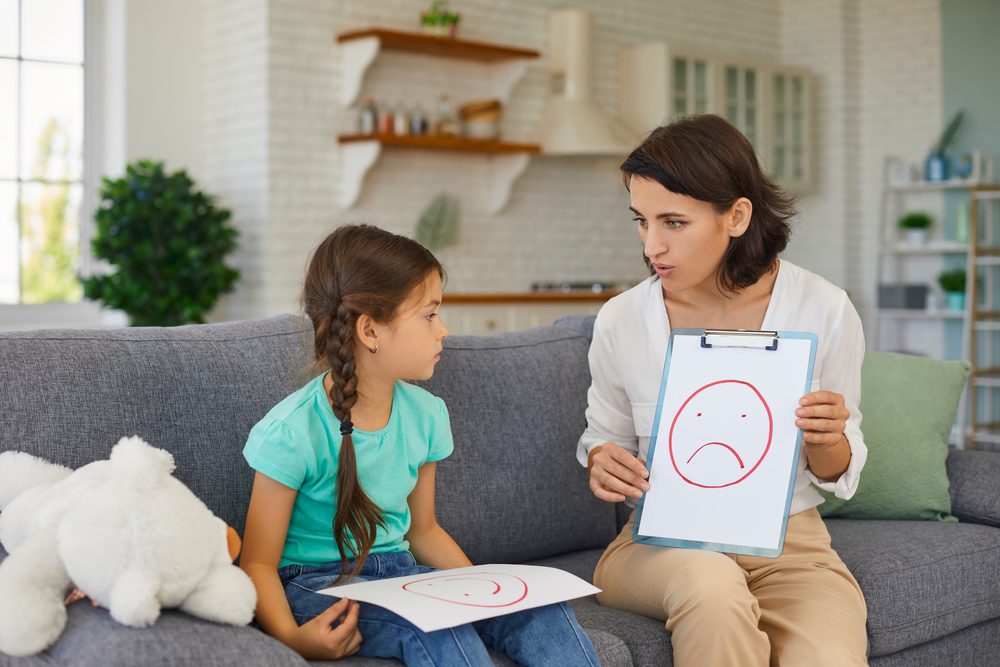Childhood anxiety is a common and often misunderstood condition that can significantly impact a child’s well-being and daily life. As parents, it is essential to recognize and understand anxiety in children and provide the necessary support and guidance. In this blog, we will delve into childhood anxiety, its potential causes, and offer strategies and techniques to help support your anxious child and promote their emotional well-being.
Recognizing the Signs of Childhood Anxiety :
Understanding the signs and symptoms of childhood anxiety is crucial for early intervention. Look out for physical symptoms like restlessness, irritability, sleep disturbances, and frequent stomach aches. Notice behavioral changes such as avoidance, excessive worrying, or seeking constant reassurance. By recognizing these signs, you can better understand your child’s experiences and provide the support they need.

Promoting Open Communication :
Encourage open communication with your child about their feelings and fears. Create a safe and non-judgmental space for them to express their anxieties. Listen attentively and validate their emotions. By fostering open dialogue, you can help your child articulate their concerns and work together to find constructive solutions.
Establishing Calming Techniques :
Teach your child various calming techniques to manage their anxiety. Deep breathing exercises, progressive muscle relaxation, and guided imagery can help them regulate their emotions. Encourage them to practice these techniques regularly and provide gentle reminders during stressful situations.

Setting Realistic Expectations :
Help your child navigate anxiety-inducing situations by setting realistic expectations. Break down tasks into smaller, manageable steps to prevent overwhelming feelings. Encourage them to take things at their own pace and celebrate their efforts, regardless of the outcome. By focusing on progress and effort, you can boost your child’s self-confidence and reduce anxiety.
Seeking Professional Support :
If your child’s anxiety significantly interferes with their daily life, consider seeking professional help. A licensed therapist or counselor experienced in working with children can provide additional strategies, support, and guidance tailored to your child’s needs. Professional intervention can help your child develop effective coping mechanisms and build resilience.
Conclusion
Understanding and supporting your anxious child is vital for their emotional well-being and overall development. By recognizing the signs of childhood anxiety, promoting open communication, teaching calming techniques, setting realistic expectations, and seeking professional support when needed, you can empower your child to navigate their anxiety and thrive. Remember to be patient, compassionate, and provide a safe and nurturing environment. With your support, your anxious child can develop the necessary skills to manage their anxiety and embrace a more confident and fulfilling life.


